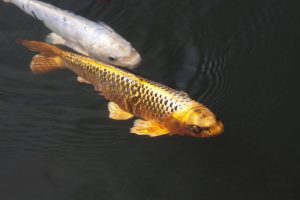The preparation of medicines in the process of raising turtles is a must. You will never know when the turtles will use them, but it is more effective to prepare some medicines in a timely manner than to mess around with medicines when you are not prepared. Disinfectants for tortoises are a large category of external medicines for tortoises, including many medicines, but these medicines also have advantages and disadvantages, and the owner should also know some precautions when choosing to use them.
Recommendations on disinfection drugs for pet turtle breeding
pet turtle
The first thing to know is that turtles are not like other pets, and some drugs that cannot be used on humans (such as tetracyclines) are not prohibited from being used on reptiles, but if you want it to live long enough or healthy enough, in Drugs with high side effects should be avoided as much as possible. Then for the disinfection of turtles, the drugs recommended by Boqi.com are:
- Light salt water
Hospitals generally use normal saline to clean uninfected wounds, which shows that normal saline can be used to disinfect the body surface. Of course, if you think the cost is too high, you can make 5% light saline, which is also a common sense in life. Some friends like to use kosher salt, but in fact the composition of kosher salt is both beneficial and harmful to humans, but it is unknown to turtles.
- Potassium permanganate
Potassium permanganate is most suitable for disinfection of fruits and vegetables, and some are also used to clean the skin. If diluted to a certain proportion, it can also be used for gastric lavage, so it is relatively suitable for disinfection of utensils, but try to use it as much as possible. To master the proportions.
- Povidone-iodine
The best disinfectant available today. The main purpose of povidone-iodine solution is sterilization and disinfection. Some turtle friends like to use common iodine or iodine for disinfection. In fact, in terms of function, the effects of the three are similar, but povidone-iodine is milder and less irritating than iodine and iodine, which is more suitable for love turtles. use.
The povidone-iodine solution on the market has different concentrations, and the concentration suitable for turtles is 5%. The effect of povidone-iodine on turtles has the following aspects:
- Sterilize the container. Glass jars, sorting boxes, ponds or other utensils for raising turtles need to be regularly disinfected. Povidone-iodine can be mixed with water, diluted at a ratio of 1:1000, soaked for half a day (new cement ponds need to be soaked for two days), sterilized and disinfected, Then rinse with clean water.
- Disinfection of trauma. Mild scratches, broken fingers, and tails on the turtle’s skin can be disinfected with a cotton swab dipped in povidone-iodine, applied several times a day, and properly dried, and they will heal quickly.
- Disinfection before and after surgery. Turtle otitis media, scabies, tumors and other surgeries need to be locally disinfected with a cotton swab dipped in povidone-iodine to prevent wound infection. In addition, local disinfection with povidone-iodine is also required before injection therapy.
- Skin rot treatment. The rotten skin is a common disease of aquatic turtles. The main reason is that the water quality is not good. Therefore, if you want to completely cure it, you need to pay attention to the water quality. Among the treatment methods, the easiest is to use povidone-iodine solution, apply it on the rotten skin several times a day, and dry it properly, and it will recover quickly.
- Armor rot treatment. Carrion is a common disease of aquatic turtles, mainly due to poor water quality or infection caused by carapace bumps. If it is mildly rotten, you can directly apply povidone-iodine solution several times a day, and dry it properly, and it will recover quickly. If it is a severe carrion, surgery is required to remove the carrion carrion. Before and after the operation, povidone-iodine should be applied, dry maintenance, and the wound should not touch water. It takes a while to recover.
Fourth, chlortetracycline, erythromycin
Erythromycin ointment has strong antibacterial and anti-inflammatory effects, and is suitable for a wide range of diseases. Chlortetracycline is similar to it, but has a slightly different application. Generally, chlortetracycline and erythromycin ointment can be used for smearing after disinfection with iodine. . Because erythromycin is insoluble in water, it is relatively suitable for the trauma of water turtles.
But if it is a deep open wound, the effect is not as good as Yunnan Baiyao. However, Yunnan Baiyao has poor water resistance and needs to be dry-raised for tortoises, so Yunnan Baiyao will not be listed separately here.
In addition, for other disinfectants, such as 84 disinfectant, Lysol water, bleaching powder and other chlorine-containing disinfectants, for tortoises, it is not necessary to use them. After all, they have great side effects. It is also unbearable.







